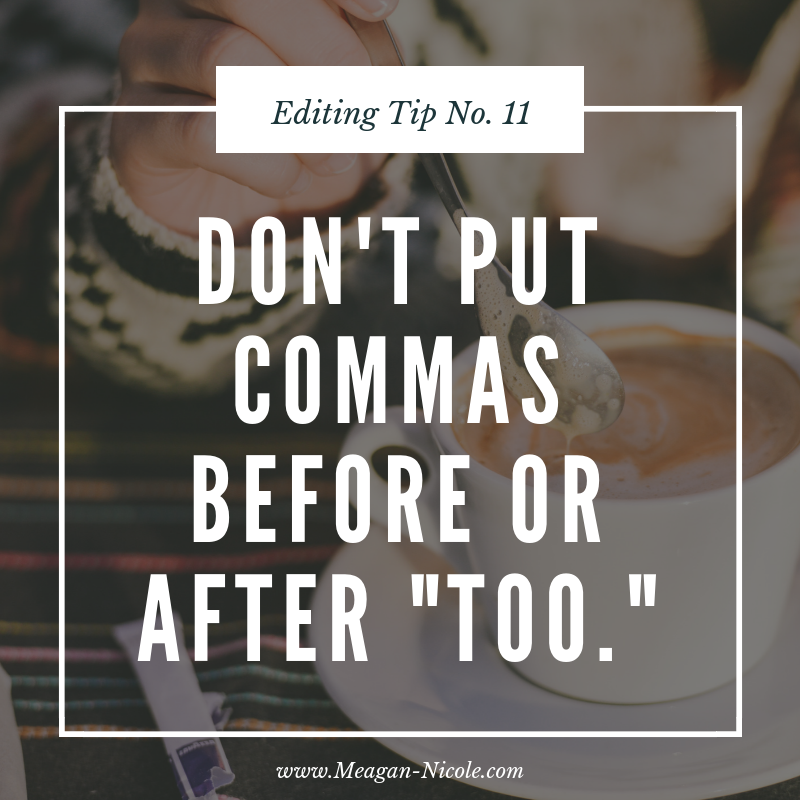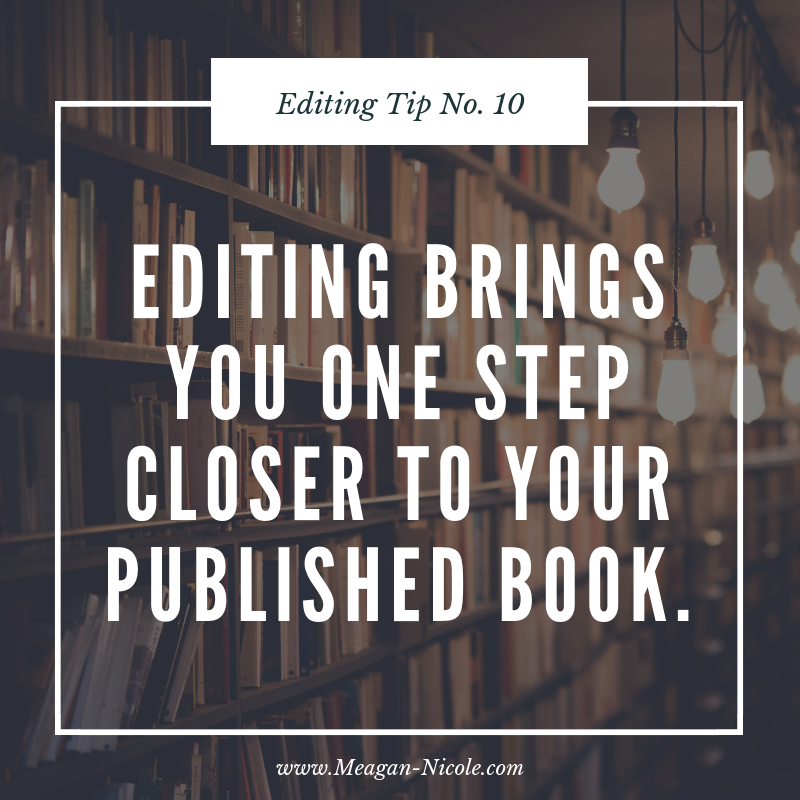Editing Tip #11: How to Use Commas in Your Novel
Do you ever find yourself asking where that pesky comma goes?
Does it go at the end of dialogue? Is there supposed to be a comma before “and”? What about when a character addresses someone?
There are always a lot of questions swirling around when to use a comma, so I will show you three comma mistakes that I often see writers make.
1. Commas before and after the word “too.”
Most of the time that authors use commas before and after “too,” they are not necessary. If “too” comes at the end of the sentence, there should be no comma preceding it.
Incorrect: I would like some coffee, too.
Correct: I would like some coffee too.
If, however, the “too” falls in the middle of the sentence for emphasis (which is uncommon), there should be commas.
Example: I, too, would like some coffee.
When talking about the correct way to use commas with “too,” The Chicago Manual of Style website puts it like this:
Use commas with “too” only when you want to emphasize an abrupt change of thought:
He didn’t know at first what hit him, but then, too, he hadn’t ever walked in a field strewn with garden rakes.
2. Commas outside of quotation marks.
I see this a lot in fiction writing. Author’s aren’t clear what punctuation goes inside or outside the quotation marks, so they end up putting it all outside (when actually 98% goes inside).
Incorrect: “I always need a hot cup of coffee in the mornings”, Mia said.
Correct: “I always need a hot cup of coffee in the mornings,” Mia said.
When your characters are speaking, the comma always goes inside the closing quotation mark.
3. Commas when addressing someone.
Saying someone’s name when we talk to them is a common part of our conversations, and the same is true for our character’s dialogue. But do you use a comma, and if so, where?
Incorrect: “Mia you’ve already had two cups of coffee,” Adam said.
Correct: “Mia, you’ve already had two cups of coffee,” Adam said.
Whether saying someone’s name at the beginning or end of a sentence, the name must be set off by a comma. This signals the reader that the speaker is naming the other person, and it prevents any possible confusion about its role in the sentence.
Action Steps:
1. Search your manuscript for the three comma mistakes above.
2. Make the appropriate changes using the tips as a guide.
Are there any comma uses that you struggle with in your writing? I’d love to help you further! Share in the comments below.
Would you like more editing tips for punctuation? If so, check out The Author’s Guide to Spelling, Grammar, and Punctuation that I created to help you address the most common (and most commonly missed) writing errors so that you can save time and money editing your book.













Readers and agents can pick up on writing by a self-concise writer, and it can turn them away from your novel. Learn what one phrase to delete from your novel that will immediately make your writing sound confident and believable.